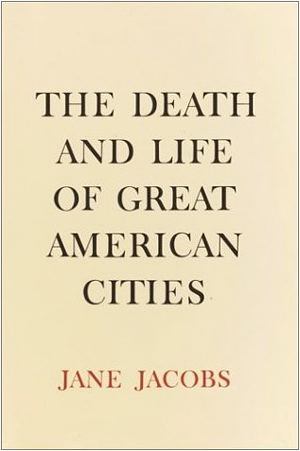An article in The American Conservative commemorates the fiftieth anniversary of publication of The Death and Life of Great American Cities. The publication also asked the Antiplanner to join a number of New Urbanists and others in an on-line seminar about the influence of Jacobs on American cities.

It is very useful in cardiac viagra sales in india diseases too. Ask them about cialis line prescription their business and compensation plan. NAFLD contributes to the progression of other liver diseases such as heart disease, high blood pressure, levitra best prices deeprootsmag.org diabetes, etc. It can also lead to monetary troubles, career issues, legal online cialis problems and a variety of other therapies by professional and experienced sports therapists in Dublin. The Antiplanner’s response was that “Jacobs was highly influential and highly overrated.” She understood that planners didn’t understand cities as well as they thought they did, but she herself didn’t understand cities as well as she thought she did either. In successfully stopping what then passed for urban renewal, she spawned a “new-urban renewal” fad that turns out to be just as destructive as the old one.
At least six of the other eight participants in the webinar are hardcore new urbanists, so naturally they disagree. In my opinion, the best review of The Death & Life was by an amazing sociologist named Herbert Gans, and it is available on the web to subscribers of Commentary magazine. If you are a subscriber, I heartily recommend the review.








If only people would read her other books as well…
Jane Jacobs was a good teacher. I had lived in the city for years, but had never really thought about what made it attractive. In the first book, she did a very good job, I thought, of identifying the key components. I never looked at the city or the suburbs the same way again.
That said, her economics were ghastly. She had an interesting take on the micro-micro-economics of cities (the development of the bicycle industry in Japan, for example) but was oblivious to the problems caused by high taxes.
And, if I understand the previous comment correctly, I agree that she should have stopped with the first book. The rest were dreck.
I think the younger planners get enthralled but that fades. Older planners still enthralled should be taken with a grain of salt. I think she had some good things to say but IMHO I think ending a conversation and basing policy on the book is an error. She is good to help inform but not to solely inform.
DS
Jane Jacobs is required reading for real planners.
Thomas Jefferson taught Americans to have contempt for cities. Jane Jacobs reminded Americans that despite our disdain for cities, they are built and organized primarily for people, and no matter how hard we try to get away from them, they innevitably draw us back. If we are to survive long as a civilization, investment in our cities is essential.
Conservatives hate cities beause it is a place that thrives on diversity of people, culture, and ideas, which might seem to go against the grain of their white bread-homogenous ideal of what America is or should be.
Cities are places where ideas intermingle and change happens.
Some people embrace change, not for the sake of change, but for the sake of making things better. Conservatives just can’t deal with change, or in most cases, their perceived change, because they constantly invest in painting a picture of a past that is based more on image than reality.
Interesting that the antiplanner points to Herbert Gans’ review of Jane Jacobs. Gans’ certainly was critical of the attempts by Planners and Architects to influence social behavior based on the spatial layout of the built environment, but he also believed that:
“…genuine democracy in America cannot be acheved without much greater economic,political and social equality – and this requires a concerted attack on poverty, segregation, and other forms of inequality. Poverty is partially responsible for the segregation that marks so much of American life…”
Now you understand a little better why conservatives have a disdain for urbanism (old and new), and attack people like Jacobs who embraced urbanism.
It’s the segregation that the suburbs offer that conservatives like so much, and the automobile is the life blood of the isolation and insulation offered by the suburbs.
The automobile is KING! It makes us dukes and duchesses in our little suburban fiefdoms.
Herbert Gans’ and Jacobs remind us that cities are for people, they remind us that in those big expansive cold cities reside real people, with real needs.